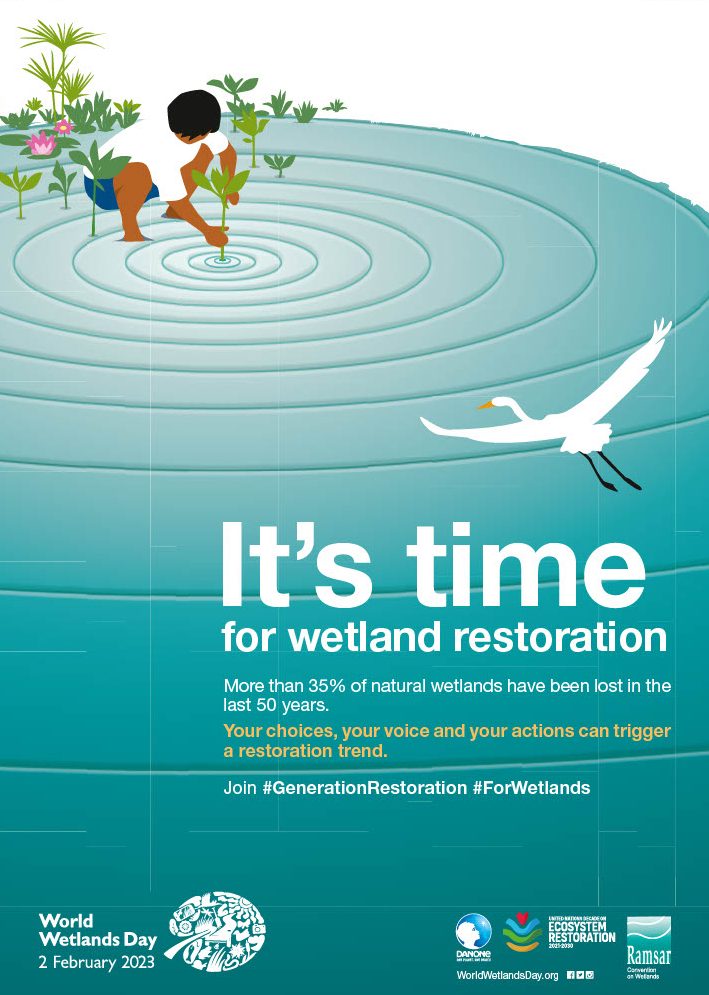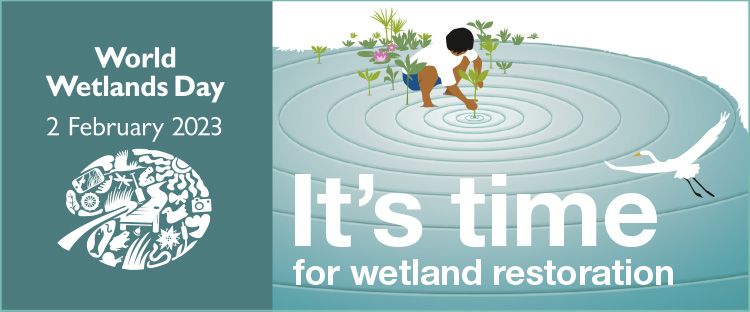World Wetlands Day is a global awareness campaign celebrated every year on February 2 to highlight the value of wetlands. It aims to increase public awareness of how much wetlands do for humanity and the planet, to promote actions that will lead to their conservation, wise use, and restoration.
A wetland is a land area that is saturated or flooded with water either permanently or seasonally. Inland wetlands include marshes, peatlands, lakes, rivers, floodplains, and swamps. Coastal wetlands include saltwater marshes, estuaries, mangroves, lagoons and even coral reefs. Fish ponds, rice paddies and salt pans are human-made wetlands.
Wetlands deliver essential services for humans, from filtering our water supply and providing water, to protecting us from storms and floods, sustaining biodiversity and storing carbon. More than 35% of wetlands have been degraded or lost since 1970, and this loss is accelerating.

This year's theme highlights the urgent need to prioritize wetland restoration. The theme builds on and contributes to the efforts to heal the planet as championed by the UN Decade on Ecosystem Restoration. This global initiative which runs from 2021-2030 is leading and providing inspiration for restoring ecosystems around the world.
Our actions have an impact. One small action can trigger a ripple effect.
This is the core idea behind this years artwork which shows a person actively restoring a wetland through the action of re-planting. The outward ripple effect suggests the spread of ideas and the far-reaching impact that a single decision can inspire.
Canada currently has 37 sites designated as Wetlands of International Importance (Ramsar sites), with a surface area of 13,086,767 hectares. According to the Nature Conservancy Canada, our country has 25% of the planet's wetlands. Today, less than two-fifths of Ontario's original wetlands remain, with losses in some areas as high as 80%.
Canada's northern peatlands are a major player in the fight against climate change. Peatlands cover 3% of the Earth's surface, and 12% of Canada's total land area, yet regulate climate at a global scale through the vast amounts of carbon stored in peatland soils. Climate warming is fueling rapid peatland ecosystem transformations through permafrost thaw and enhanced wildfire intensity. In January we learned all about Canada's peatlands from Jennifer Korosi, Associate Professor from York University. Celebrate World Wetlands Day with Markham Public Library and learn all about Canada's peatlands in the video below and explore our wetlands reading list.




Add a comment to: The Importance of Wetlands